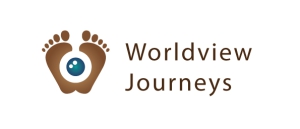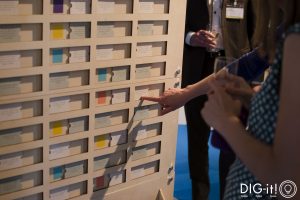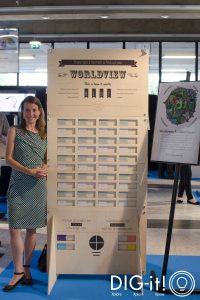When I say transformation, I’m referring to deep change, on the level of our worldviews ~ our understanding of the world around us and ourselves in it. This does not necessarily mean transformation from one worldview to another, but includes transformation within our worldview.
 Over time I came to realize that the Worldview Test can be used as a tool and entry-point for stimulating reflection, interaction, and transformation, in a variety of contexts, from education to organizations and events. For this purpose I’ve founded Worldview Journeys. On the Worldview Journeys website you can read more about our educational philosophy and our understanding of transformation.
Over time I came to realize that the Worldview Test can be used as a tool and entry-point for stimulating reflection, interaction, and transformation, in a variety of contexts, from education to organizations and events. For this purpose I’ve founded Worldview Journeys. On the Worldview Journeys website you can read more about our educational philosophy and our understanding of transformation.
Below you can read a bit more about how my research into worldviews led to the creation of the Worldview Test, and then to the founding of this new organization.
The more aware we are of our basic paradigms, maps, or assumptions, and the extent to which we have been influenced by our experience, the more we can take responsibility for those paradigms, examine them, test them against reality, listen to others and be open to their perspectives, thereby getting a larger picture and a far more objective view.
Worldviews as entry-point for deep change
 Quite spontaneously, the Worldview Test (and the model behind it) became a tool for transformation.
Quite spontaneously, the Worldview Test (and the model behind it) became a tool for transformation.
It started when the University of Delft’s innovation office put a designer to work to translate my research into a “worldview-board game”, which was to be displayed at their research exhibition. The designer made a big, beautiful, wooden board-game that people could actually ‘play’ with, using their hands and minds in unison.

Standing with the board at the exhibition myself, I observed people playing the game. A bit to my surprise, I noticed it really worked. People clearly enjoyed exploring these fundamental life questions and finding out where they would fit into the different categories of worldviews as found by the research, and discussing their insights with each other.
Working with multiple organizations I noticed the same thing. People not only enjoyed learning more about these worldviews, this approach also was able to shed light on the organizational culture, and create opportunities for more meaningful conversations.
Then I was approached by the American Institute for Cultural Evolution, who invited me to speak at their summit, and offered to develop a digital version of the board-game. The Worldview Test was born!
Once the Worldview Test was put online, it started to travel across the globe. By now, more than 50.000 people have taken the test and their numbers are growing every day. I started receiving emails from teachers and professors using it in their classrooms, which signaled to me it could be used for educational purposes. This eventually led me to found Worldview Journeys.
